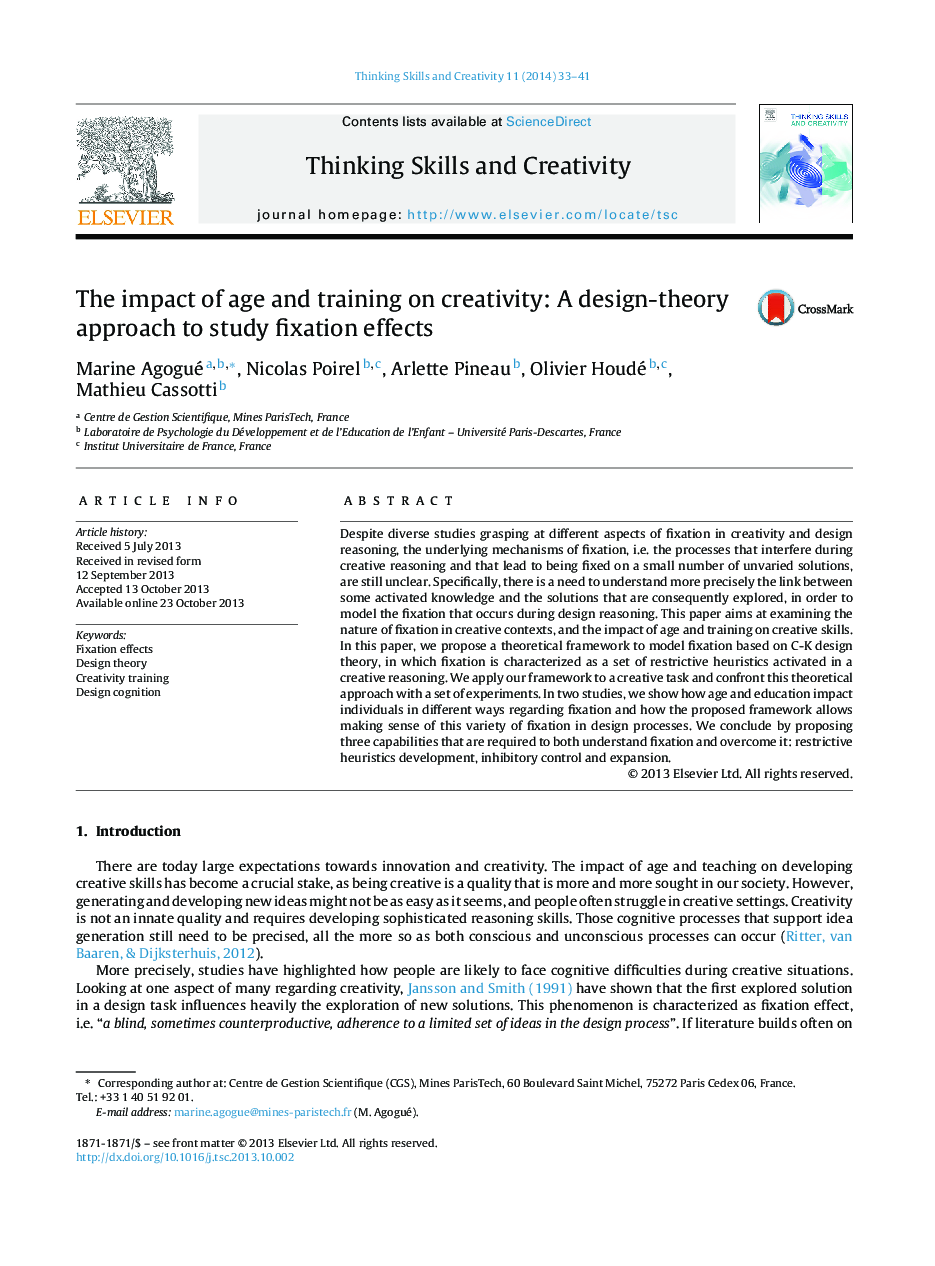| Article ID | Journal | Published Year | Pages | File Type |
|---|---|---|---|---|
| 375598 | Thinking Skills and Creativity | 2014 | 9 Pages |
Abstract
Despite diverse studies grasping at different aspects of fixation in creativity and design reasoning, the underlying mechanisms of fixation, i.e. the processes that interfere during creative reasoning and that lead to being fixed on a small number of unvaried solutions, are still unclear. Specifically, there is a need to understand more precisely the link between some activated knowledge and the solutions that are consequently explored, in order to model the fixation that occurs during design reasoning. This paper aims at examining the nature of fixation in creative contexts, and the impact of age and training on creative skills. In this paper, we propose a theoretical framework to model fixation based on C-K design theory, in which fixation is characterized as a set of restrictive heuristics activated in a creative reasoning. We apply our framework to a creative task and confront this theoretical approach with a set of experiments. In two studies, we show how age and education impact individuals in different ways regarding fixation and how the proposed framework allows making sense of this variety of fixation in design processes. We conclude by proposing three capabilities that are required to both understand fixation and overcome it: restrictive heuristics development, inhibitory control and expansion.
Related Topics
Social Sciences and Humanities
Psychology
Developmental and Educational Psychology
Authors
Marine Agogué, Nicolas Poirel, Arlette Pineau, Olivier Houdé, Mathieu Cassotti,
